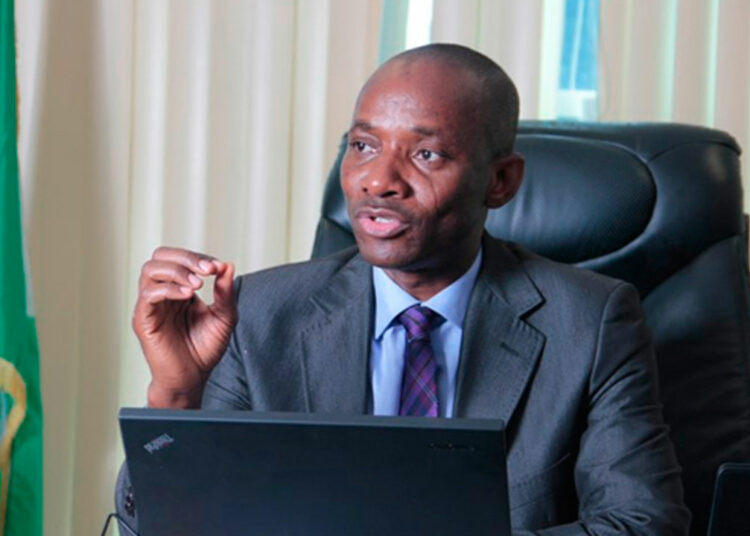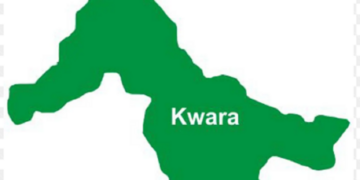A former chairman of the Nigerian Electricity Regulatory Commission (NERC), Dr Sam Amadi, has said Nigeria’s poor rating in the corruption perception index and other indicators of public integrity is a cause for concern.
Amadi said Nigeria could be better in rating state effectiveness.
He made the remarks as the guest Speaker at the 6th Annual Lecture of Just Friends Club of Nigeria (JFCN), which was held yesterday in Abuja. Amadi’s lecture was “High Cost Of Governance As An Impediment To Development.”
Olorogun Peter Igho, a former executive director (Programmes) of the Nigerian Television Authority (NTA) and former director-general of the National Lottery Regulatory Commission, chaired the lecture.
A statement issued by the president of JFCN, Mr Fred Ohwahwa, quoted Amadi as saying that despite having an array of well-educated and nurtured people, Nigeria is expected to be imbued with a high degree of ethics and competence in corporate and public leadership.
To Amadi, Nigeria faces an acute crisis of values, reflected in the gross lack of productivity in its private and public sectors.
“As a world-leading oil producer, we ought to be richer than we are. But we know that the wealth of nations does not come primarily from natural resources. Countries like Singapore and South Korea are not so naturally endowed.
“They are geographically constrained in many ways. But Nigeria won the geographical lottery in many ways. Yet, they are, in many ways, victims of Dutch Disease. Natural resources have not translated into wealth.
They have mostly turned into a curse,” Amadi lamented.
“Natural resources in themselves are not a curse. They are a blessing. But a blessing that calls for more work to turn them into lasting benefits for the people. Some Scandinavian countries, like Nigeria, are endowed with oil. They turned theirs into a blessing through smart policies and management. For them, oil resources have lubricated the national innovation system, which has made them high-income economies. Examples are Norway and Finland,” he said.
Amadi, currently the Director of the Abuja School of Social and Political Thought, remarked that Nigeria’s travail is partly due to the lack of good leadership that can mobilise citizens toward a virtuous path of productivity. He added that such leadership is often described as transformative or redefining.
He noted that currently, Nigeria has a low-quality public education system and a dysfunctional public service structure that weakens the capacity of the state to deliver development. Said he: “Capacity is an important ingredient of development. With low capacity, a country may be unable to generate and implement good policies effectively. Lessons from successful Asian countries underline the importance of state capacity. These countries succeeded because they can design and implement good policies with coherence and effectiveness.”
In his welcome remarks, Mr Fred Ohwahwa, the President of JFCN, said the topic was germane to the present time. “From whatever angle you look at it, Nigeria is an apology to its vibrant citizens, the African continent, and the Black race. We are far behind in virtually all development metrics. And this is despite the abundant human and material resources the country is blessed with,” he stated.
He added: “Our infrastructural deficit is scandalous; our education, health and other sectors are begging for quality intervention. This unfortunate state of affairs is partly attributable to the high cost of governance. And this is at all levels of government. The time has come for us as a nation to review our system of governance to make the people the primary purpose of government.”
The panellists were Dr Ahmed Adamu, an associate professor and a petroleum economist at Nile University, Abuja; Mr Abdulhakeem U. Mustapha, a Senior Advocate of Nigeria(SAN) and former member of the Legal Committee of the National Council on Privatisation; and Dr Felix Oisamoje, an adjunct Senior Lecturer of Mass Communications at Bingham University, Keffi.
JFCN is a socio-cultural organisation that fosters and encourages the spirit of oneness, companionship, and comradeship amongst members, the club, and other friendly associations. The club is also involved in recreation and sports and engages in acts of philanthropy in favour of the needy members of the society at large. Its members are professionals in engineering, communication, accounting, business, legal and other sectors of the economy.











